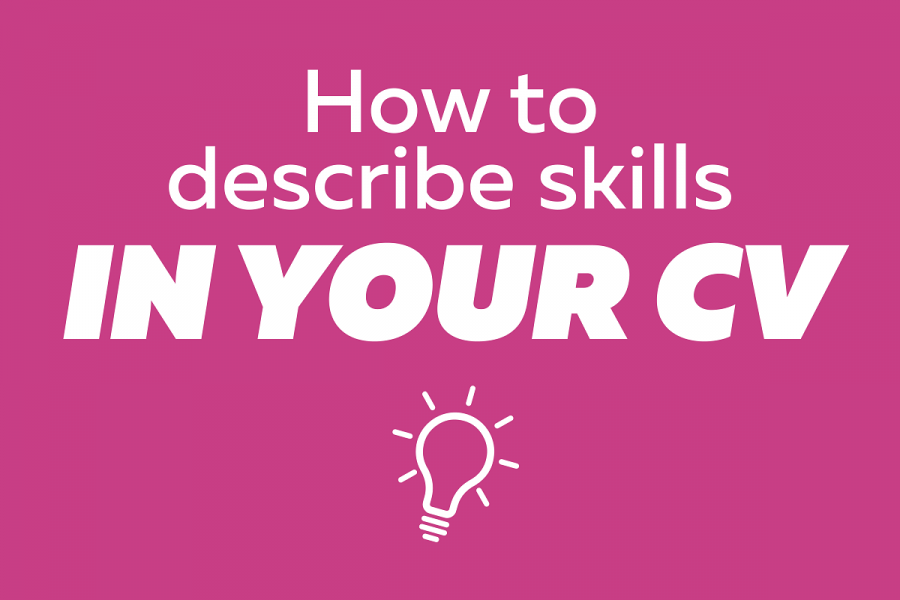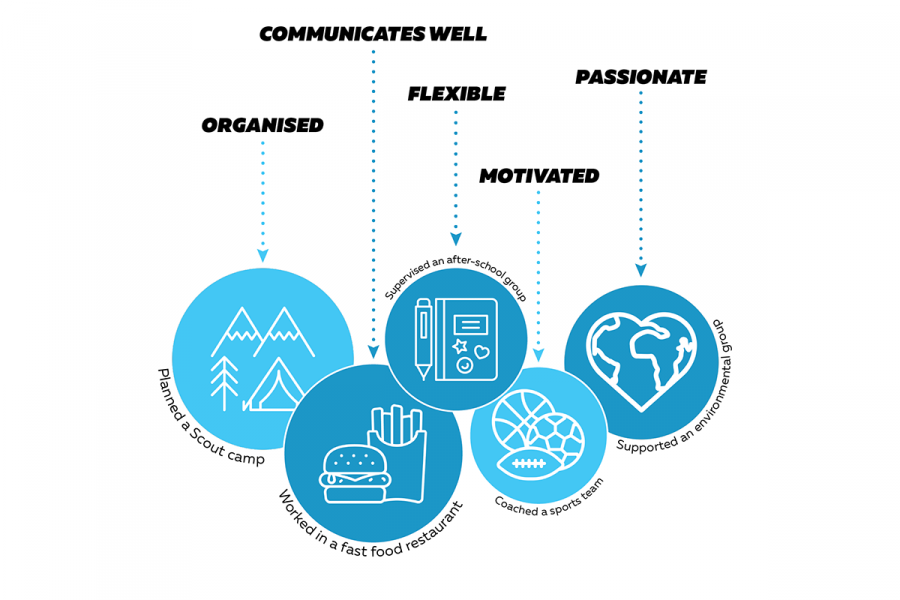How to describe skills in your CV
Make your CV stand out to employers by showing them your skills and how you’ve used them.
What's on this page?
Figure out your skills
If you’re not sure what your skills are, your first step is to identify them.
You gain skills from life experiences, such as paid and unpaid jobs, interests, hobbies, playing sport, belonging to organisations or school.
Identify skills employers want
To find out what skills employers are looking for, you can:
- ask employers directly
- read job adverts carefully
- learn about employability skills.
Employability skills are seven personal skills or attitudes employers say are essential for their workplaces.
Top 5 skills listed in job adverts
Compare your skills to what employers want
When you read an advert, list the skills it mentions. When you know what skills employers are looking for, compare your skills to these.
Assess your ability in each skill as accurately as you can. Ask yourself if you have used this skill a little or a lot.
For each skill, write a sentence showing how you’ve used that skill. Then write a sentence showing how you could use that skill in the job you would like.
What skills should I put in my CV?
The skills in your CV should include skills from the adverts that interest you.
Look at this example:
"We're looking for a conscientious self-starter, proficient in Microsoft Office and Adobe Photoshop, who works well with others and can learn new computer systems easily."
The key words are:
- conscientious
- self-starter
- proficient in Microsoft Office and Adobe Photoshop
- teamwork
- willingness to learn.
Show how you used skills
For each skill on your CV, include an example that shows how you used or developed it.
You could write:
Conscientious
I collected and managed money from my school’s 40 Hour Famine fundraiser.
Self-starter
Ran a coffee kiosk. Managed and counted the till takings, opened and closed kiosk.
Teamwork
Worked with the school trustees to make decisions about school issues. I played netball on a school team for four years and was captain in Year 13.
Willingness to learn
I updated my Microsoft skills (Excel and Word) through online courses.
Make your experience stand out
Employers may get many job applications from people who have, for example, 'good communications skills' or who are 'flexible'.
By showing how you can communicate well and be flexible, your CV can make a stronger impression.
You could write:
Good communication skills
Can follow instructions and ask questions when I need to. I'm confident in front of an audience. I was a member of my school’s debating team, took part in school drama productions, and won a regional speech competition.
Flexibility
I usually work after school, but I've taken on later shifts to cover staff shortages.
List technical skills
Employers may be looking for specific skills and recruiters may search for keywords in databases. Be specific when you list your technical skills.
For example, write:
- Expert knowledge of Adobe Photoshop and Microsoft Office.
- Good knowledge of social media platforms and WordPress.
- Class 2 driver’s licence with F endorsement.
Choose strong words
When you write your examples:
- Use 'action' words such as achieved, awarded, organised, led, assisted, managed, increased, developed, built or won
- Use positive words to describe yourself and your achievements such as accurate, willing to learn, organised, hardworking, dependable, motivated or creative.
Writing your CV can prepare you for an interview
As well as helping you write a stronger CV, writing about your experiences will prepare you to talk about them if you get a job interview.
Find out more
Updated 27 Jul 2023

